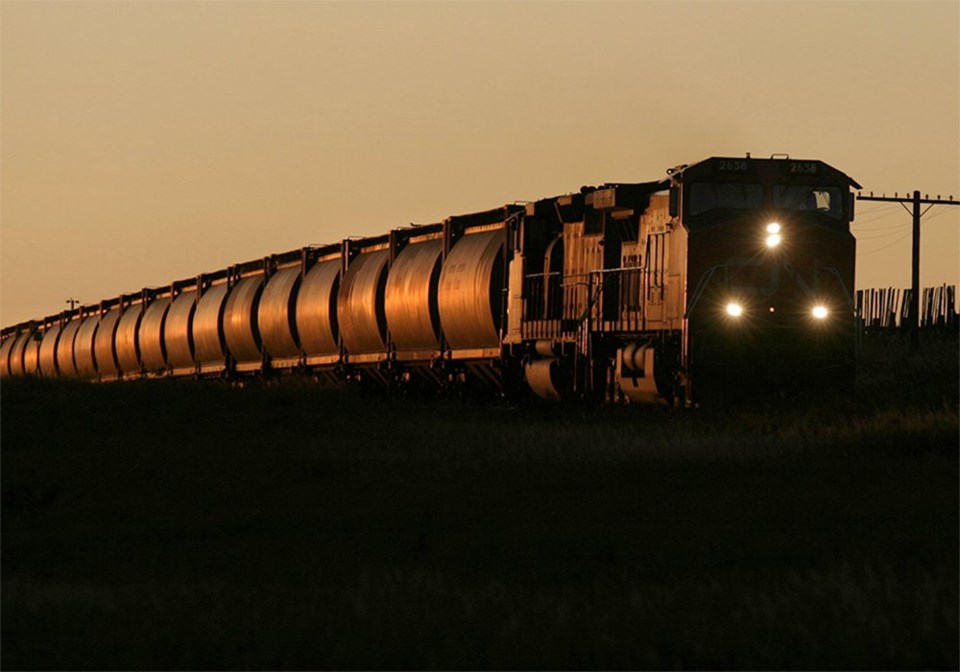WESTERN PRODUCER — The recent and short-lived rail service disruption at Canadian Pacific Railway created uncertainty for rail shippers and caused further damage to Canada's international reputation as a reliable supplier of commodities, say sources in Canada's grain and fertilizer industries.
Even so, it's unlikely the railway industry will ever be designated an essential service in Canada, according to one rail industry expert who spoke during a recent web event hosted by the Canadian Agri-Food Policy Institute (CAPI).
Scott Streiner, former chair and chief executive officer of the Canadian Transportation Agency, said mechanisms already exist to ensure that labour disputes between rail carriers and unionized railway employees have a limited impact on the economic well-being of rail-dependent industries such as agriculture.
Streiner said the chances of Ottawa taking legislative action to designate rail as an essential service and ban strike or lockouts are slim.
"I would rate the odds of there being legislative action or other action to deem rail an essential service (as) very, very low," said Streiner, who now provides private-sector mediation and arbitration services.
"Notwithstanding … the impact of labour disruptions in the rail sector on shippers, I think it is very unlikely that that would ever happen."
Representatives from the Canadian grain handling and fertilizer industries said during the March 28 webinar that the recent rail service disruption at CP caused considerable harm to finances and to Canada's reputation as a supplier of food and agricultural inputs.
"Frankly, right now, our reputation is very, very bad with our customers," said Wade Sobkowich, executive director of the Western Grain Elevators Association (WGEA), which represents the country's largest grain handling companies.
Sobkowich said disruptions to rail service, regardless of how short they may be, trigger a system-wide slowdown that results in financial penalties, delivery delays and difficulties in executing grain supply contracts.
"When we know a work stoppage is coming … we have to start shutting down the system. We have to start telling our customers they're not going to get product, again adding to the damage to our reputation," Sobkowich said.
"We have to start shutting down producer deliveries into the system, so even though the stoppage only lasted for two days, really it had (a week's worth of impact) for us."
Sobkowich suggested that regulators use available tools to ensure work stoppages in the Canadian railway industry are avoided altogether.
In lieu of that, Ottawa should move to have commercial rail freight deemed an essential service.
The WGEA promoted the idea of binding arbitration in the weeks leading up to the CP work stoppage.
In the end, both parties in the labour dispute agreed to binding arbitration, but not before service had been interrupted.
Sobkowich said the nature of Canada's rail network means that some grain shippers are beholden to a single railway company for service.
That monopolistic scenario means that many shippers have no competitive alternative when rail service is suspended.
The passage of Bill C-49 a few years ago partially addressed this issue but many elevators in the Canadian grain industry are still "beholden to a monopoly," he said.
"We really think that rail service needs to be established as an essential service," Sobkowich said.
"Let's find another mechanism so we don't have to deal with work stoppages every year or two."
Karen Proud, a top executive with Fertilizer Canada, offered a similar view, citing concerns of reputational damage, financial losses and global food security.
"I do think that we need to find a way to ensure that we don't have (work stoppages) … like we've experienced in the past," Proud said.
"And if that means rail has to be deemed an essential service, if that's the only option, then I think that deserves serious consideration."
But according to Streiner, legislative measures to ban strikes or lockouts in the railway industry would be difficult to enact and would require a fundamental re-engineering of the Canada Labour Code. That's unlikely under the current Liberal administration.
In addition, a series of Supreme Court decisions made between 2007 and 2015 ruled that the right to collective bargaining and the right to strike is protected under Section 2 of the Canadian Charter of Rights.
"It's now a constitutionally protected right (to strike) and of course, the Supreme Court will only accept any derogation of constitutional rights if there's a compelling reason for it," Streiner said.
"So, it would be a very high bar (for an essential service legislation) to pass."
Streiner said the threat of back-to-work legislation offers reasonable assurance that a prolonged rail service disruption would not be tolerated, particularly if the Canadian economy and the well-being of key sectors was in jeopardy.
Malcolm Cairns, a rail industry consultant, agreed.
"I don't think it (an essential service designation) is the best solution," Cairns said, adding that history shows rail service disruption in Canada is infrequent and when it does occur, it is generally short-lived.
"The federal government is usually quick to step in with back-to-work legislation," Cairns said.
"It is likely that a designation of 'essential' would impair labour relations and would be a step backwards."




